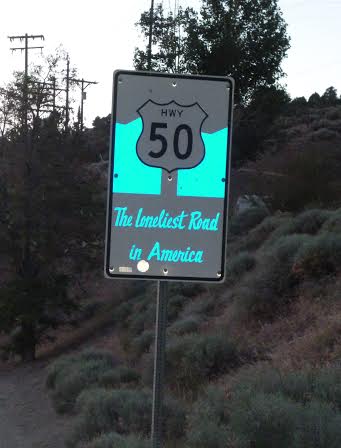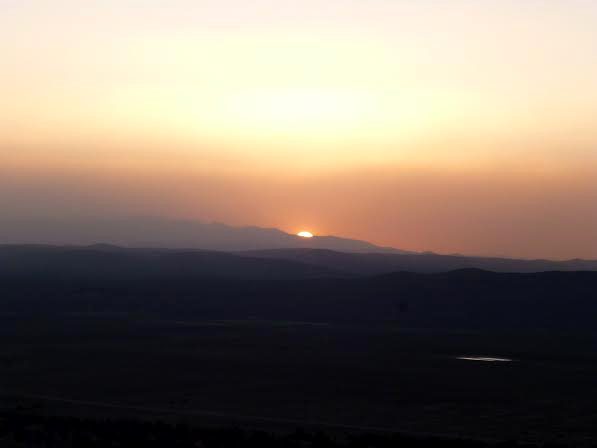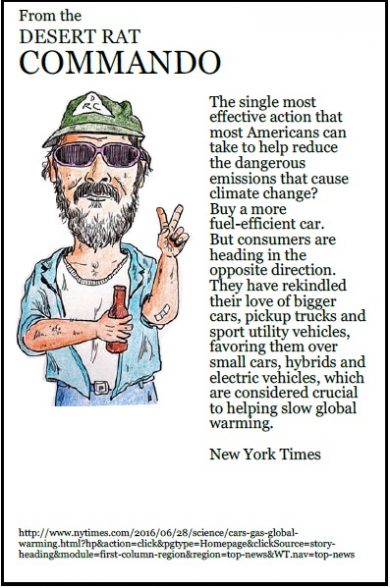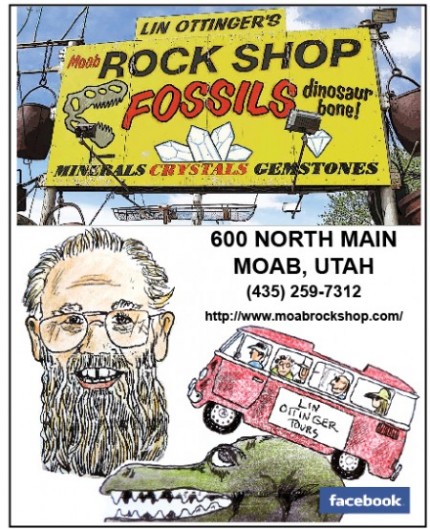Note: since this is an essay it doesn’t have a geographical setting on this, much less any other, planet. In the absence of such a setting I offer photographs from my journey across the topographical heart of Nevada on U.S. 50, “The Loneliest Road in America,” taken either in the old central Nevada mining town of Austin, or within its geographical vicinity.
If once in your life you can take this journey – do it.
***
“…by enshrining the profit motive (power) as our guiding ideal, we encourage the intensive and accelerating consumption of land, air, water – the natural world – on which the structure depends for its continued existence. A house built on greed will not long endure.” – Edward Abbey, 1988
This is the second of several essays devoted to the hypothesis that plausible solutions to difficult problems, even where catastrophic consequences hang in the balance, are often not considered simply because they don’t fit within a dominant paradigm. And that this syndrome may well apply to our ever escalating eco-crisis, and in particular to climate change.
In writing this I’m making the working assumption that our failure to thus far competently address these problems does not stem largely from some overt human flaw, such as psychological denial, selfishness, or good ole greed (even though it damn well might). Instead I’m focusing on the possibility that certain of our treasured political and economic beliefs, the ones that have seemingly have led to such remarkable progress for humanity since the industrial revolution, simply don’t work in the long run. And that we’ve been too blind to see it and too ornery to listen to those who do.
***
Let’s begin with what to me is a mind-whacking op-ed on the conservative opinion page of the Charleston Gazette-Mail dated May 31, 2016: “Fracking Ban Would be Catastrophic,” by Robert Bryce, a senior fellow at the Manhattan institute and Porter Bennett, CEO of Ponderosa Advisors LLC. The final paragraph says: “It’s time for some energy realism. The shale revolution has profoundly improved America’s energy fortunes. If opponents of fracking succeed in banning it, they will have succeeded in killing a uniquely American success story that is helping consumers and the environment.”
(Helping the environment? What are you drinking, boss?)
In their op-ed Bryce and Bennett do mention solar and wind energy and also list two old-time, mainline environmental organizations. And also, interestingly to me, 350.org (if you dunno know the issue 350.org overwhelmingly focuses on look it up now). Because the surreal part follows herewith, which is the explanation Bryce and Bennett give for why people oppose fracking: “These politicos and activists repeatedly claim that fracking is dangerous and that it will cause widespread ground water contamination.”
Is ground water contamination the major reason 350.org opposes fracking?
Hell, no. 350.org was expressly created to take on the very issue Bryce and Bennett so conspicuously avoided in their op-ed: climate change
And if you can think of a better instance of the emperor wearing no clothes than this here, let me know. Because it’s climate change more than anything else that makes fracking gas, which is simply natural gas, colossally dangerous. Yes, natural gas is less toxic as a greenhouse gas than coal and oil but it’s still plenty toxic. Emitting it into the atmosphere at all adds even more to the accumulated greenhouse gases that are increasingly destabilizing our climate.
Importantly, it’s also an unconventional fossil fuel, and unconventional fossil fuels significantly expand worldwide reserves of fossil fuels available for production. This is nutso because even before the technology for fracking was fully developed humanity had ALREADY discovered more fossil fuel reserves than it could safely produce. At least if people are thinking about having a habitable planet (there’s some question about that).
Bottom line here: Bryce and Bennett didn’t mention climate change because it reveals that the kind of economic growth they’re advocating for has become desperately obsolete.
On the same page was an editorial, “Intimidation of Climate Skeptics a Scientific Fact.” It accused U.S. Attorney General Loretta Lynch and some state attorneys general, as well as the attorney general of the Virgin Islands, of violating the First Amendment rights of climate skeptics.
That seemed strange to me because I thought it had been the climate scientists who had earlier been systematically harassed and persecuted by certain right wing organizations.
Specifically, the editorial said that “The AG of the Virgin Islands, a U.S. territory, issued a subpoena ‘demanding that the Competitive Enterprise Institute cough up a decade of e-mails and policy work as well as a list of private donors,’ the [Wall Street] Journal writes.”
Now why would a good AG do such a thing?
In fact I have a superbly detailed book with the answer. It was written by the esteemed Penn State climate scientist Michael Mann and it carefully documents his own persecution at the hands of so-called climate skeptics, particularly when he was at the University of Virginia. And per his book, The Competitive Enterprise Institute has through its lackeys attacked climate science and climate scientists, allegedly heckled British Prime Minister Tony Blair’s chief scientific advisor Sir David King as he gave public lectures on climate change, attempted to undermine constructive U.S. governmental climate change steps, and also attempted through a website to discredit the esteemed environmental scientist Rachel Carson. (See Michael E. Mann, The Hockey Stick and the Climate Wars (2012), pp. 70, 74, 110, 195-197, 231, 237.)
In short, the Virgin Islands attorney general was simply doing her job, investigating the skullduggery of the Competitive Enterprise Institute.
First Amendment, my eye!
Of course there’s more. The editorial also said: “‘New York Attorney General Eric Schneiderman started the assault last autumn by with a subpoena barrage on Exxon Mobil,’ the [Wall Street] Journal wrote. Schneiderman demanded documents that claimed some Exxon scientists warned greenhouse gases might cause global warming but hid the truth from the public and shareholders.
“It turns out the peer-reviewed documents had been available to the public for years.”
A story in Scientific American by Shannon Hall, however, paints a different – and accurate – picture. In brief: (1) that as early as 1977 Exxon was aware from its own scientists that climate change was a serious matter indeed, and (2) that although Exxon Mobil’s spokesman Allan Jeffers claims some documents were made publicly available in its archives, (a) in 1988, “when NASA scientist James Hansen told a congressional hearing that the planet was already warming, Exxon remained publicly convinced that the science was still controversial.” Furthermore, (b) “experts agree that Exxon became a leader in campaigns of confusion.” And (c) “Since then, Exxon has spent more than $30 million on think tanks that promote climate denial, according to Greenpeace.” (“Exxon Knew About Climate Change Almost 40 Years Ago,” 11/26/15. http://www.scientificamerican.com/article/exxon-knew-about-climate-change-almost-40-years-ago/).
The editorial goes on to quote from a letter of protest to the Department of Justice written by everyone’s pal Ted Cruz and signed by four other Republican Senators. It accused the Obama administration of using “the power of government to intimidate and ultimately silence companies and researchers who do not agree with the government’s opinions about the allegedly harmful effects of climate change and what should be done about it.”
Cruz’s claim that the vastly harmful effects of climate change are merely “alleged” is preposterous. He’s much too intelligent and educated not to know that those harmful effects are overwhelmingly confirmed by credible scientific findings. His letter comes across as a slick effort to spray ideological perfume both on Exxon’s suppressing vitally important evidence and upon the behaviors of people who well deserve to be investigated by attorneys general.
***
In moving toward some conclusions I’m going to quote several times from Chapter One of Naomi Klein’s now classic 2014 book on climate change, This Changes Everything, wherein she describes attending a 2011 right wing conference devoted to this subject and sponsored by The Heartland Institute.
First, from the very beginning of her chapter, a 2008 quote by Thomas J. Donohue, then President of the U.S. Chamber of Commerce: “There is no way this can be done [ambitious carbon reduction] without fundamentally changing the American way of life, choking off economic development, and putting large segments of our economy out of business.” (p.31.)
U.S. Chamber of Commerce: “There is no way this can be done [ambitious carbon reduction] without fundamentally changing the American way of life, choking off economic development, and putting large segments of our economy out of business.” (p.31.)
Well, he simply admitted it, though in a back-handed way: that the wide open growth economic system the U.S. Chamber of Commerce champions is in the long run proving itself, at least in its pure form, to be unworkable. That’s what climate science and with it the environmental movement have been year by year revealing and that’s why the political right has labored so futilely and often so nastily to undermine climate science’s credibility. And why, especially lately, it’s been publicly distancing itself from the subject.
Klein backed up Donohue’s words with her own observations at the Heartland conference: “So here’s my inconvenient truth: I think these hard-core ideologues understand the real significance of climate change better than most of the ‘warmists’ in the political center, the ones who are still insisting that the response can be gradual and painless…The deniers get plenty of the details wrong…but when it comes to the scope and depth of change required to avert catastrophe, they are right on the money.” (pp.43-44).
That’s why they loathe accepting the level of adaptive change that would be required of them. That for humanity to have a stable, arguably humane way of life from now on, the assumptions that they have made about free markets and continuing economic growth must be largely surrendered.
Because market activities in the future would be limited by the capacity of each one of the Earth’s ecosystems to provide natural resources (if it can) without losing its robust capacity to regenerate itself. Meaning no sacrifice zones (the very zones economic rightists have always relied upon). And also meaning that fossil fuels are gone forever. It’s ironic that although the free market political right regards such a level of adaptation as unthinkable, these are precisely the conditions in which homo sapiens has successfully survived and thrived for roughly 90% of its history.
And that exemplifies the thesis I’ve been emphasizing in these essays: that the very approach to life that the economic right regards as unthinkable is exactly what has the best track record in fostering human survival and cultural stability. And in conferring the joy of knowing that one’s way of life ultimately makes sense. (In addition, note that humanity has boss technology available to help with such an adaptation.)
What if, tragically, the market fundamentalists do prove to be more than merely stubborn and ornery? What if in fact they don’t fit my working assumption and reveal themselves to be too self-centered, cold-hearted and greedy to face this new reality? What if they tragically devote every sinew and nerve, as well as their considerable resources, to preserving the dominance of their now outdated growth economic system, even as their own societies increasingly lose their ability to adapt to the vicissitudes of climate change? Naomi Klein has penned a chilling scenario along these lines:
“The corporate quest for natural resources will become more rapacious, more violent. Arable land in Africa will continue to be seized to provide food and fuel to wealthier nations, unleashing a new stage of neocolonial plunder layered on top of the most plundered places on earth…When heat stress and vicious storms wipe out small farms and fishing villages, the land will be handed over to large developers for mega-ports, luxury resorts, and industrial farms. Once self-sufficient rural residents will lose their lands and be urged to move into increasingly crowded urban slums – for their own protection, they will be told. Drought and famine will continue to be used as pretexts to push genetically modified seeds, driving farmers further into debt.
“In the wealthier nations, we will protect our major cities with costly seawalls and storm barriers while leaving vast areas of coastline that are inhabited by poor and Indigenous people to the ravages of storms and rising seas. We may well do the same on the planetary scale, deploying techno-fixes to lower global temperatures that will pose far greater risks to those living in the tropics than in the global North…. And rather than recognizing that we owe a debt to migrants forced to flee their lands as a result of our actions (and inactions), our governments will build ever more high-tech fortresses and adopt even more draconian anti-immigration laws. And, in the name of ‘national security,’ we will intervene in foreign conflicts over water, oil, and arable land, or start those conflicts ourselves. In short our culture will do what it is already doing, only with more brutality and barbarism, because that is what our system is built to do.” (pp. 48-49.)
If market fundamentalists and their ilk actually are foolish enough to attempt something like this, I think in the end the people of the world will get organized and stop them. And then move on to a paradigm that actually works.
All photos courtesy of the author.
SCOTT THOMPSON is a regular contributor to the Zephyr.
He lives in Beckley, WV.
To read the PDF version of this article, click here.
To comment, scroll to the bottom of the page.
Don’t forget the Zephyr ads! All links are hot!












